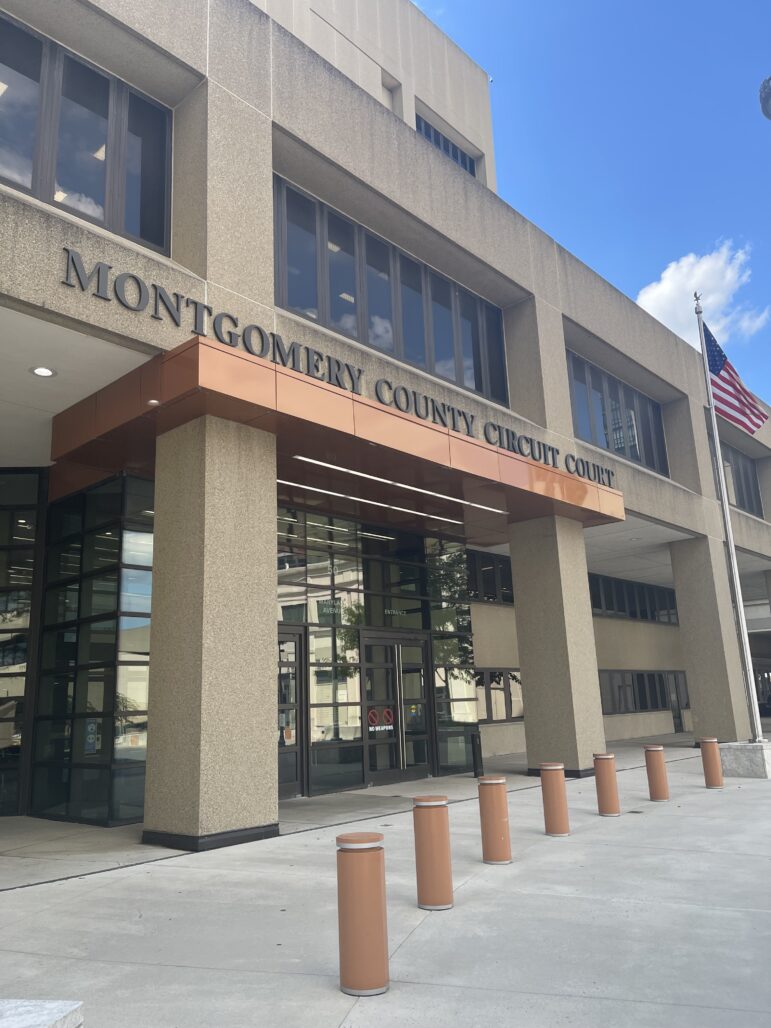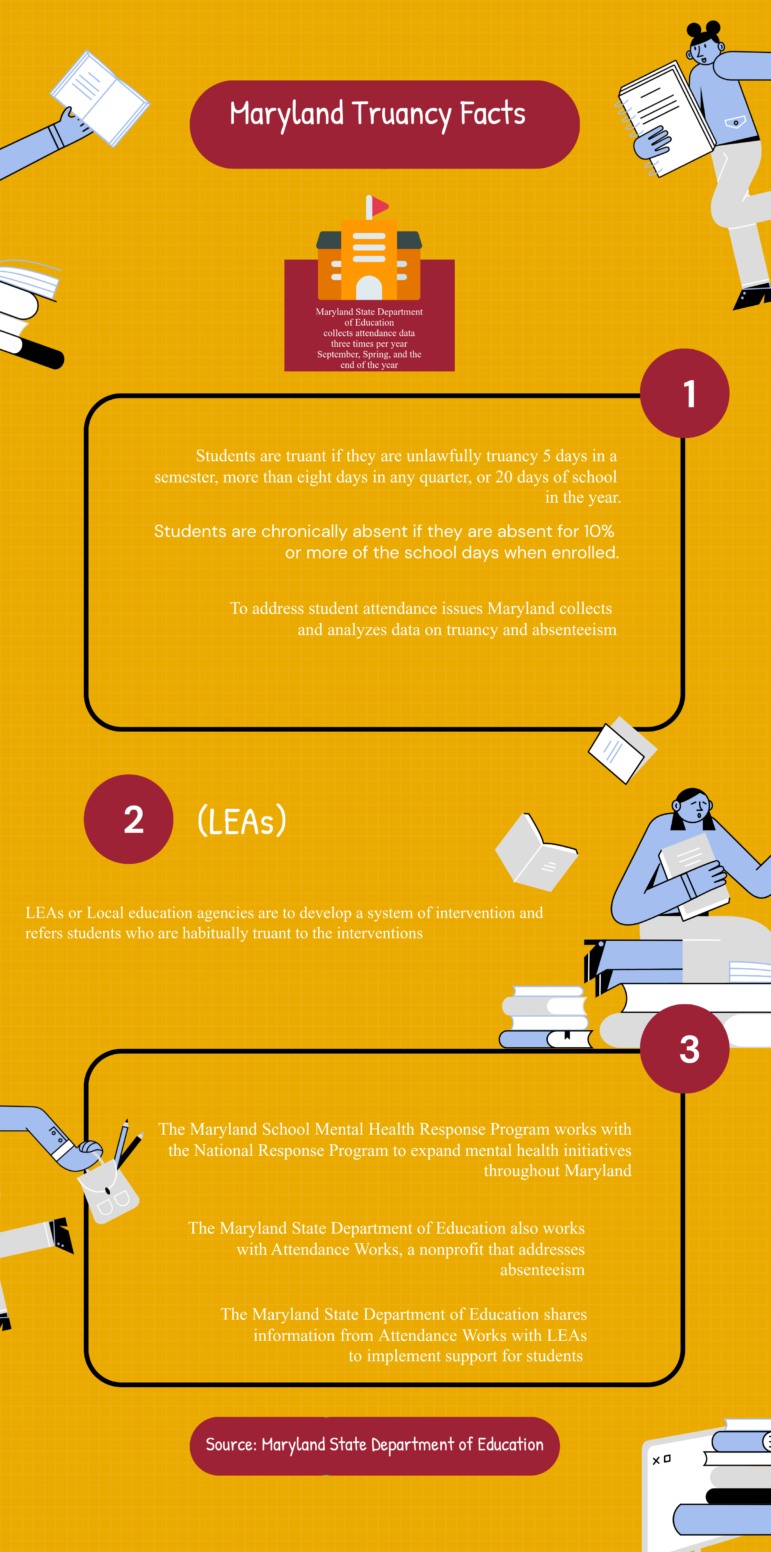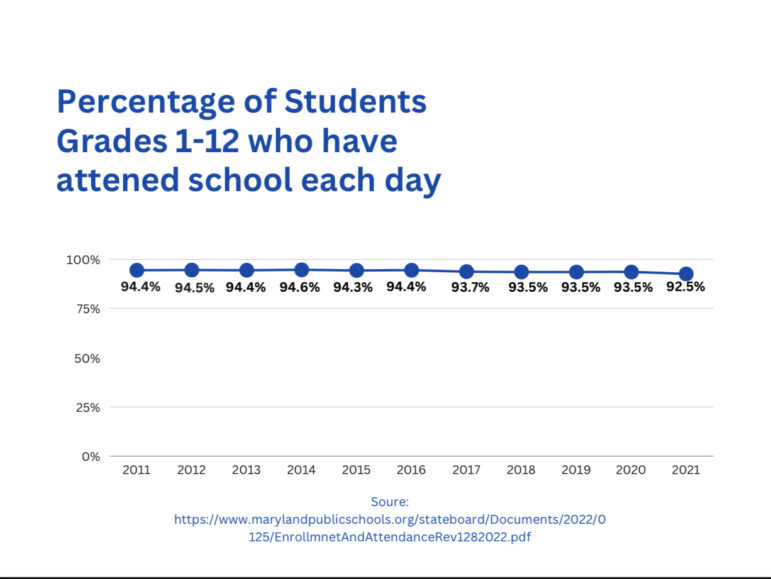The TPP program was designed to help students avoid becoming truant in Montgomery county, Maryland. Rebecca Marcolini who serves as the director of the TPP (Truancy Prevention Program) with Montgomery County wants to end truancy
TPP is a volunteer program created in 2010 through the state’s attorney’s office to help kids and teens identify what is keeping them from attending school and setting a goal in place for them to reach their full potential.
Truancy Prevention Program
Students begin the program with an orientation and are in the program for 10 weeks. Those who are 10 to 20 % truant are invited to voluntarily participate in the program that lasts 2 1/2 hours per session and is during school hours.
The program serves mostly middle school students.
Resource officers act as mentors to the students within the program depending on the schools preference if they would like them to help out with the program.
“This is not like a punitive thing, it’s not like the police are involved to get the kids,” said Lauren DeMarco, the director of public affairs for the state’s attorney’s office.
Both Marcolini and DeMarco emphasized how in the program students are not in trouble but are here to help those who sign up to help them with attending class and raise their grades.
“The essence of this program is to determine what is holding back this child,” said Marcolini.
To figure out what is holding the child back from coming to school, TPP will bring in a mentor so that the child can discuss what’s going on whether that is bullying, helping out a younger sibling, or staying up playing video games.
Those who successfully finish TPP get to participate in a graduation ceremony acknowledging the work that students have done in completing the program. “The greatest success has been kids start actually coming to school and not only do they start coming to school but their grades start to get much better,” said Marcolini.

Aside from county initiatives, the state also plays an important role in helping with truant and absent students return to the program according to the Maryland State Department of Education
The Maryland State Department of Education
In the state of Maryland, a student is habitually truant when they unlawfully miss 15 days in a semester, more than eight days in any quarter, or 20 days of school in the year. Students who miss 10% or more of the school days are considered chronically absent.
To help combat the issue, the Maryland State Department of Education has established several plans to help get students back into the classroom. Maryland law requires that local education agencies (LEAs) create an intervention system and refer students who are truant to the interventions. The Maryland Mental Health response program was also recently created by the Maryland State Department of Education to provide support for students.

Attendance Works, which is a nonprofit organization aimed at combating chronic absenteeism, works with the Maryland State Department of Education in guiding them on different ways to approach the issue at hand so that they are able to share it with LEAs at schools around the state.
“Well it’s all about what they want to do in life and what are their goals and aspirations,” said Dr. Ronald Madden, a retired educator who has worked in academia in the New York, New Jersey and Maryland area.
The Maryland State Department of Education has established Blueprint, a strategic plan to help student outcomes and quality education within the state. One of the main goals is to help create more resources for students by adding more funding to schools, enhancing community schools in low income communities and increasing funding for special education programs and English learners.
Statistics on Attendance in Maryland Schools
According to the National Center of Education Statistics, absenteeism has increased since COVID-19. Maryland saw a drop during the 2020-2021 school year.

Since then, Maryland and specific counties such as Montgomery County, have come up with plans to help get students back on track.
Final Thoughts From TPP Director on the Program
“It really results in giving them a lot more confidence that they can see themselves succeeding and that motivates them,” said Marcolini.